Other
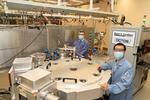
“Understanding how electrons move in 2-D layered material systems could lead to advances in quantum computing and communication Scientists studying two different configurations of bilayer graphene—the two-dimensional (2-D), atom-thin form of carbon—have detected electronic and optical interlayer resonances …

“Study demonstrates a long-predicted process for generating matter directly from light — plus evidence that magnetism can bend polarized photons along different paths in a vacuum Scientists studying particle collisions at the Relativistic Heavy Ion Collider (RHIC)—a U.S. Department …

“Understanding how magnetic correlations change over very short timescales could be harnessed to control magnetism for applications including data storage and superconductivity What happens when very short pulses of laser light strike a magnetic material? A large international collaboration led …

“Complex 3-D nanoscale architectures based on DNA self-assembly can conduct electricity without resistance and may provide a platform for fabricating quantum computing and sensing devices. Three-dimensional (3-D) nanostructured materials—those with complex shapes at a size scale of billionths of …
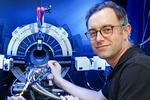
“X-ray scattering yields new information on “charge density waves” High-temperature superconductors are a class of materials that can conduct electricity with almost zero resistance at temperatures that are relatively high compared to their standard counterparts, which must be chilled to …

“The search is on to discover new states of matter, and possibly new ways of encoding, manipulating, and transporting information. One goal is to harness materials’ quantum properties for communications that go beyond what’s possible with conventional electronics. Topological …
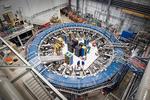
“For decades, scientists studying the muon have been puzzled by a strange pattern in the way muons rotate in magnetic fields, one that left physicists wondering if it can be explained by the Standard Model — the best tool physicists have …

“Scientists previously observed this peculiar behavior—characterized by electrons preferentially traveling along one direction, decoupled from the host crystal structure—in other materials whose ability to conduct electricity without energy loss cannot be explained by standard theoretical frameworks Scientists have …
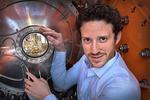
“You know how you leave space in a water bottle before you pop it in the freezer—to accommodate the fact that water expands as it freezes? Most metal parts in airplanes face the more common opposite problem. At high …
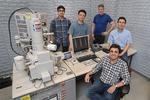
“Scientists at Brookhaven Lab’s Center for Functional Nanomaterials created “hybrid” organic-inorganic materials for transferring ultrasmall, high-aspect-ratio features into silicon for next-generation electronic devices To increase the processing speed and reduce the power consumption of electronic devices, the microelectronics industry …
